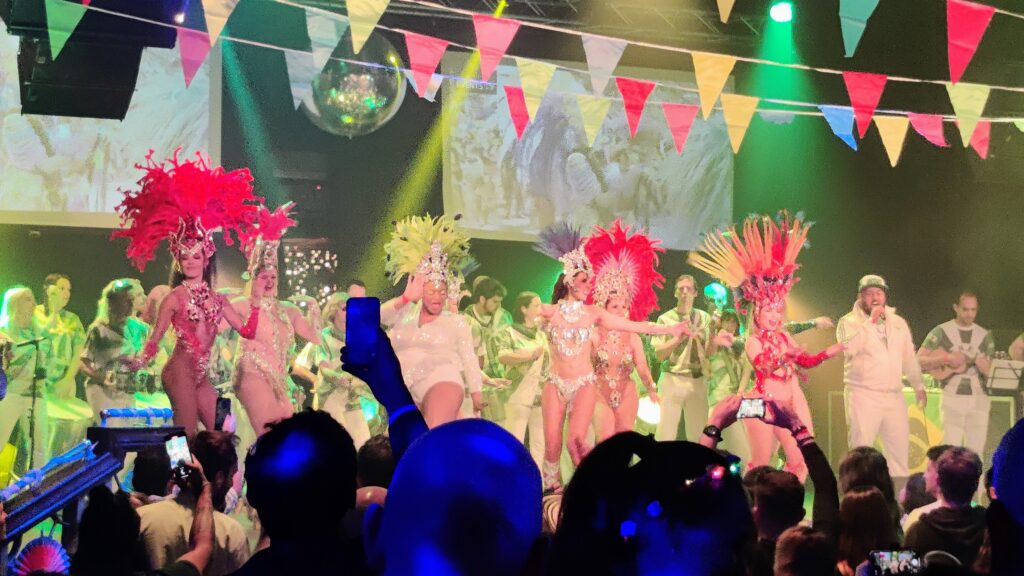This week, Brazilians around the world have been celebrating Carnival. Carnival is the most popular holiday in Brazil taking place in February or March in the run-up to Lent and is a time for people to dress up in colourful costumes, party and to celebrate Brazil’s unique culture and traditions.

Events are put on in cities across Brazil, including large-scale celebrations in Rio de Janeiro, São Paulo, Salvador, and Recife. Some of these festivities centre on renowned samba parades, featuring elaborate floats and dance routines, where samba schools compete for victory. There are also countless street parties known as blocos, accompanied by live music and vibrant costumes. In 2022, more than 200,000 people attended the parades at Rio’s Sambadrome alone.
With 4.2 million Brazilians living abroad, including an estimated 220,000 in the UK, Carnival celebrations aren’t just restricted to Brazil. Last week, I attended Carnival at the Clapham Grand Theatre in London at an event organised by Brazilian Events UK. The event featured live music, drummers, DJ sets and an appearance from the London School of Samba. For me, the London School of Samba was a particular highlight as it transported me from a rainy January in London to the streets of Rio.
Brazilian Carnival vocabulary
| Carnival | Carnaval |
| Carnival queen | Rainha do Carnaval |
| Costume | Fantasia |
| Mask | Máscara |
| Master of ceremonies and flag-bearer | Mestre-sala e Porta-bandeira |
| Parade | Desfile |
| Samba school | Escola de Samba |
| Sambadrome | Sambódromo |
| Street party/group | Bloco |
